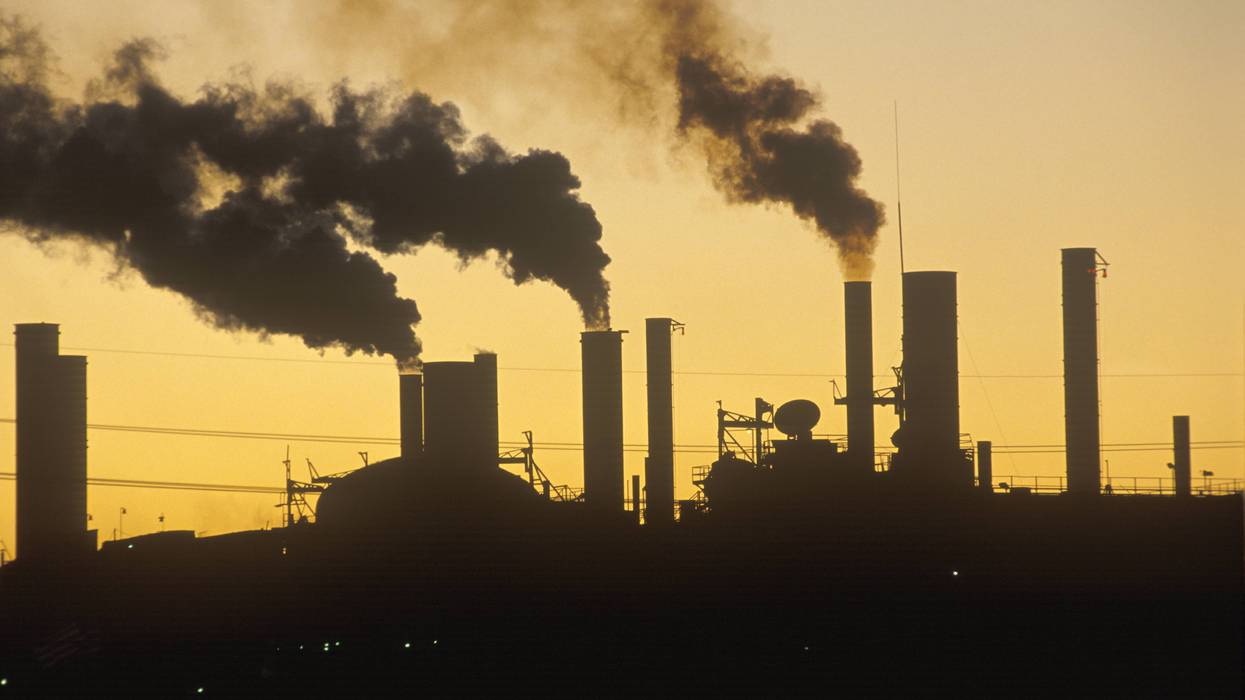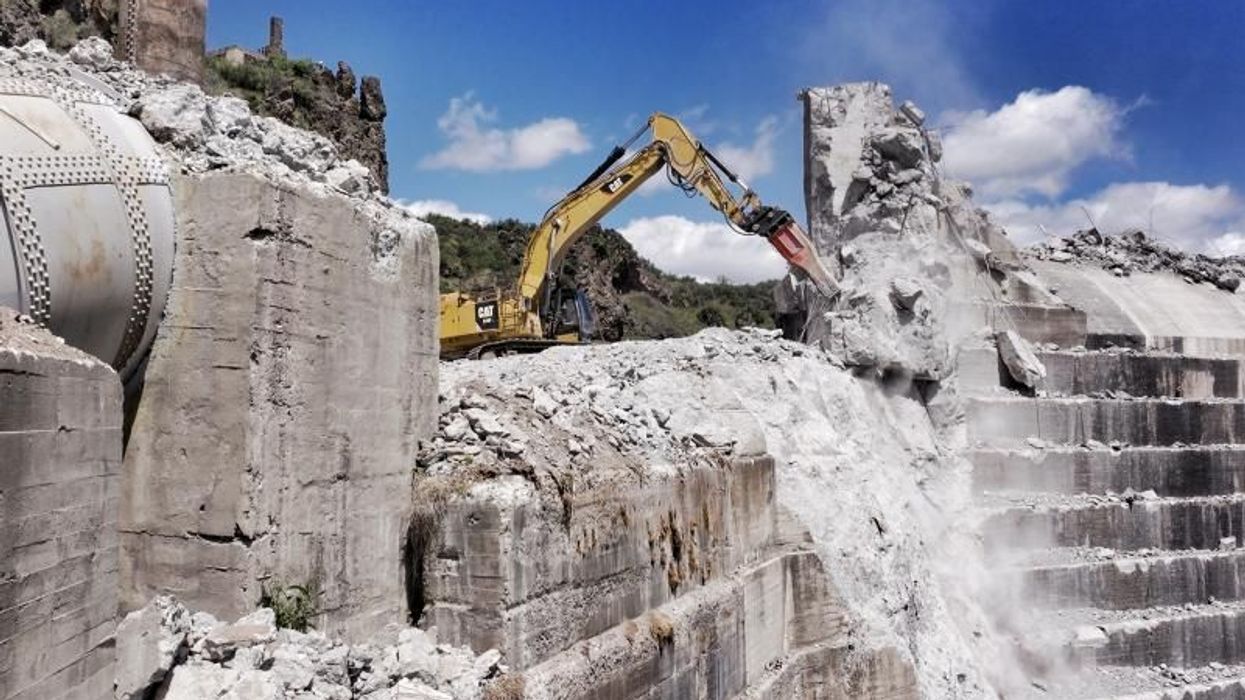Warnings of 'Permanent' Damage to People and Planet as Trump EPA Set to Repeal Key Climate Rule
One critic blasted the impending move as "an obvious example of what happens when a corrupt administration and fossil fuel interests are allowed to run amok."
In what experts warn would be the most sweeping rollback of US climate policy ever, the Trump administration is expected this week to repeal the Environmental Protection Agency's "endangerment finding," the Obama-era rule empowering climate regulation over the past 15 years.
The endangerment finding determined that six greenhouse gases—carbon dioxide, methane, nitrous oxide, hydrofluorocarbons, perfluorocarbons, and sulfur hexafluoride—caused by burning fossil fuels are a single air pollutant that threatens public health and welfare, rather than treating each gas individually, for regulatory purposes.
The 2009 finding has served as the legal foundation for EPA climate rules, including limits on power plant emissions and automobile fuel economy standards under the Clean Air Act.
The new rule would end the regulatory requirement to measure and report vehicle emissions, certify the results, and comply with limits. It would also repeal compliance programs and credit provisions.
“This amounts to the largest act of deregulation in the history of the United States,” EPA Administrator Lee Zeldin said in a Monday interview with the Wall Street Journal.
However, Senate Majority Leader Chuck Schumer (D-NY) warned Tuesday on the upper chamber floor that "this week, the Trump administration is set to take one of its most nakedly corrupt steps since Donald Trump returned to office, and that’s saying a lot: a wholesale reversal of essentially all greenhouse gas regulations."
"Trump is making a radical move that will send shockwaves across the economy—uncertainty for manufacturers, states, regulators everywhere. And it flies in the face, of course, of basic science," Schumer said. "Let's be very clear what this announcement represents: It is a corrupt giveaway to Big Oil, plain and simple."
"Big Oil has worked tirelessly for decades to undermine rules that protect against emissions, and now that they have their guy in the White House, they are taking their biggest swing yet," the senator added. "Remember, in the spring of 2024, Donald Trump invited top oil executives to Mar-a-Lago and told them, if you raise me a billion dollars to get me elected, I will cut regulations so you can make more money. That devil’s bargain is now coming true."
Trump is trying to repeal the "endangerment finding" -- the scientific investigation that led EPA to conclude that climate change is dangerous to humans.It's scientifically unjustifiable of course, but they're going to have to justify it to a court. That should be fun to watch.
[image or embed]
— David Roberts (@volts.wtf) February 10, 2026 at 9:22 AM
Big Oil spent over $445 million to elect Trump and other Republican candidates during the 2024 election cycle.
Gretchen Goldman, president and CEO at the Union of Concerned Scientists (UCS), a nonprofit advocacy group, said in a statement Tuesday that “Zeldin took a chainsaw to the endangerment finding, undoing this long-standing, science-based finding on bogus grounds at the expense of our health.”
“Ramming through this unlawful, destructive action at the behest of polluters is an obvious example of what happens when a corrupt administration and fossil fuel interests are allowed to run amok,” Goldman added.
More than 1,000 scientists and other experts have implored EPA Administrator Lee Zeldin to not repeal the endangerment finding. In a statement last year, the Environmental Protection Network warned that repealing the finding would result in “tens of thousands of additional premature deaths due to pollution exposure” over the next several decades and spark “accelerated climate destabilization with greater risks of heatwaves, floods, droughts, and disease spread.”
While Trump administration officials told the Journal that the new rules would not apply to regulation of emissions from power plants and oil and gas facilities, some said that repealing the endangerment finding could set the stage for additional rollbacks favoring such polluters.
UCS noted Tuesday that the Trump administration “relied heavily on shoddy science in a report developed by a ‘Climate Working Group,’ composed of five skeptics well outside the scientific mainstream in its proposal to repeal the endangerment finding."
“The report, which was commissioned by the Department of Energy (DOE), has been thoroughly discredited by the scientific community, which found that the report ‘misrepresents the state of climate science by cherry-picking evidence, exaggerating uncertainties, and ignoring decades of peer-reviewed research,’” UCS continued.
On January 30, Judge William Young of the US District Court for the District of Massachusetts, an appointee of former President Ronald Reagan, ruled that the DOE violated the law when Energy Secretary Chris Wright—the former CEO of a fracking company who denies there is a climate emergency—handpicked the five researchers for the dubious report.
Republicans have been working toward killing the endangerment finding for years. Project 2025, the Heritage Foundation-led blueprint for a right-wing overhaul of the federal government, explicitly mentions the rule as ripe for repeal. Project 2025’s policy lead, Russell Vought, now directs Trump’s Office of Management and Budget (OMB).
OMB Acting Administrator of the Office of Information and Regulatory Affairs Jeffrey Clark—a purveyor of the “Big Lie” that Democrats stole the 2020 election—has also been working hard at dismantling federal climate regulations, which he once likened to a “Leninistic” plot to control the US economy.
“Instead of rising to the challenge with necessary policies to protect people’s well-being, the Trump administration has shamefully abandoned EPA’s mission and caved to the whims of deep-pocketed special interests,” Goldman said. “Sacrificing people’s health, safety, and futures for polluters’ profits is unconscionable. We all deserve better and this attack against the public interest and the best available science will be challenged.”
Climate scientist Michael Mann called the campaign to repeal the endangerment finding “a reminder that, while some of the damage that Trump [and the] GOP are doing might seem temporary, the damage they’re doing to the planet is permanent.”
Or, as Cardiff University ecologist Aaron Thierry put it, “You can repeal an endangerment finding. You can’t repeal the endangerment.”


